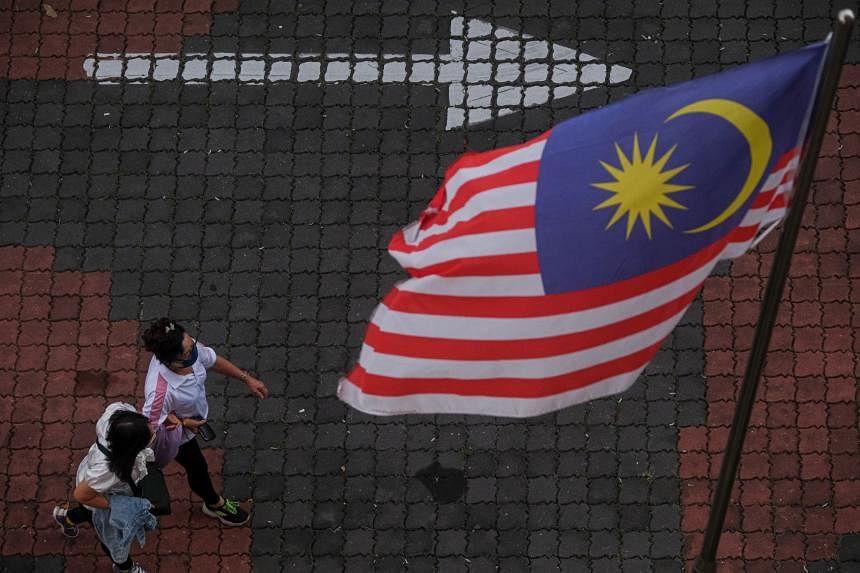
IPOH – If political leaders in Perak do not heed the needs of the state’s minority youth, they not only risk losing their votes in the coming general election, but also their presence in the state to greener pastures in other cities or countries.
Ethnic minorities feature prominently in Perak. The Chinese made up 27.5 per cent while Indians were at around 11 per cent, according to a 2020 census. The Bumiputera majority made up 57.6 per cent.
Some of these minority youths are already looking beyond the borders of state capital Ipoh for better-paying jobs.
“Sometimes over meals people talk about better job opportunities in other countries, and not in Malaysia,” said Ms Then Ke Ying, 20, a software engineering student from Ipoh.
“I realise chances here are fewer, salaries would be lower too. Many people would prefer to go abroad,” she said, adding that she would consider seeking prospects in neighbouring Singapore.
Mr Viroshen, 21, a computer science student, lamented that the outlook in Ipoh paled in comparison to Malaysia’s capital Kuala Lumpur.
“If you go to KL, there are so many opportunities compared to Ipoh. If Ipoh is brought up or developed, maybe Ipoh people won’t have to go to KL to stay there and work,” he said.
Merdeka Centre pollster Ibrahim Suffian said issues like the economy and making a living were unifying concerns among Malay majority and Chinese or Indian minority youths, but differences remained.
“The bumiputera population, young people, still have a very optimistic outlook in terms of social mobility,” he said. “The non-bumiputera younger people, have a dimmer view in terms of where things are for them, what life has in store for them, economically speaking.”
Another factor that has affected the optimism of minority youth is the country’s education system, in particular public university admissions.
Malaysia’s pre-university Matriculation Programme, which offers a fast-track path into public universities, reserves 90 per cent of its places for bumiputera students.
Mr Teh Chia Wei, a recent University of Tunku Abdul Rahman (Utar) graduate, said: “If the government has the intention, maybe they can lower the percentage of reserved spots gradually, from 90 per cent to 85, 80. Today, Malays are an educated group as well.”
“As the ruling party, if you want to serve all people fairly, if you have the sincerity, you would help ensure every one has an equal shot at receiving an education.”
While some youths face less-than-optimistic prospects, not all want to leave the state.
Mr Teh decided to stay on in Kampar after his studies to set up his photography studio Seventeen Production, moving south from Penang
Less than 40km away from Ipoh, youths in Kampar appear to show a greater sense of rootedness to the state.
The town that once prided itself as a premier tin mining centre, now relies on students at the University of Tunku Abdul Rahman (Utar) to drive its economic activities.
“I like the slower pace and rustic feeling I get here. Some young people should stay to develop this place. I want to help bring up Kampar,” Mr Teh said, adding that the pace aids his line of work.
“Life is not just about money, if I just thought about that, I wouldn’t stay here,” said the 26-year-old advertising graduate, who said he turned down job offers from Singapore-based firms.
Another recent graduate, Ms Cynthia Sim, shares the premises with Seventeen where she operates her eatery Go Canteen.
“Kampar is still developing, compared to my hometown in Penang. As a newbie in F&B, it would have been more challenging to set up there, in terms of costing and experience,” she said.
Opposition coalition Pakatan Harapan (PH) has set its sights on reclaiming Perak to complete its “Harapan corridor”, linking it with the states it retains control of – Penang, Negeri Sembilan and Selangor.
PH won Perak in 2018 but ceded control less than two years later after Bersatu’s defection from the group.
The coalition’s fate there may rest in the hands of these younger voters not just in Perak but country-wide.
According to Election Commission figures, of 2.03 million registered voters, more than a quarter – more than 516,000 of them – fall in the 18-29 age group.
But whether this younger voter segment emerges as kingmakers depends on them turning up to vote on Nov 19.
Muda Perak’s elections chief Ms Thanusha Ramanieswaran, 24, said she was “highly confident” youths will “maximise” their democratic rights, especially on the back of news that tertiary students will be given five days off classes to vote.
MCA Perak’s youth chief Daniel Wa acknowledged the “huge” impact these young voters could potentially have on the outcome of the general election, with any party they lean towards standing a good chance of victory.

